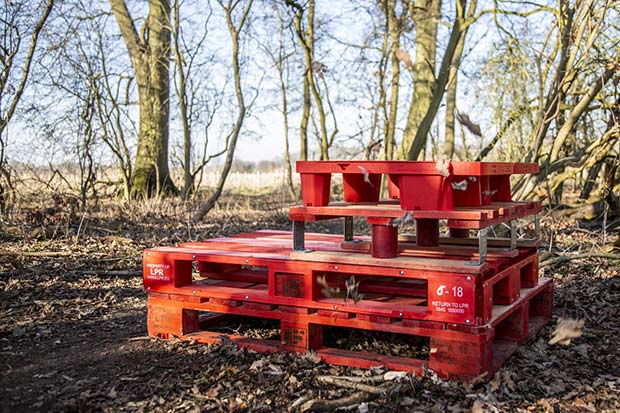For businesses in the fast-moving consumer goods (FMCG) sector, pallet choice and management can be a key source of hidden risks and costs. Diane Carroll, UK & Ireland Commercial Director at red pallet pooling specialist LPR, sums up the issues, and the solutions.
 Manufacturers, suppliers and other businesses across the FMCG sector are under increasing pressure from factors including the plastic packaging backlash, the rising culture of e-retailing and same-day delivery. In such a rapidly changing market, it’s difficult to apply effective cost measures, whilst at the same time maintaining customer service and competitive differentiation. Pallet-related costs, for example, can easily be overlooked and may eat into already narrow margins.
Manufacturers, suppliers and other businesses across the FMCG sector are under increasing pressure from factors including the plastic packaging backlash, the rising culture of e-retailing and same-day delivery. In such a rapidly changing market, it’s difficult to apply effective cost measures, whilst at the same time maintaining customer service and competitive differentiation. Pallet-related costs, for example, can easily be overlooked and may eat into already narrow margins.
What are the risks?
Let’s start with pallet design, quality and condition. Battered, broken and dirty-looking pallets give a bad impression, especially in retail outlets where customers view palletised goods. Deliveries may even be rejected, leading to additional costs to your business. Worse still, pallets that are wrongly specified, poorly constructed or weakened by defects may collapse which can be both expensive and disruptive. Damaged goods, clean-up work and replacements are a likely result, not to mention the risk to the health and safety of those in the vacinity. In automated systems, even a small defect or size inconsistency in a pallet can be enough to jam machinery, potentially leading to repair bills and lost productivity. Further risks arise from inefficient pallet supply. If goods are ready to leave but pallets are not available; deliveries will be delayed and reputational damage may occur. This could be as a result of failure to meet sudden increases in pallet demand, or from errors and inefficiencies in pallet delivery. Poor planning and co-ordination of pallet transport is another risk which could lead to extra costs in time, mileage and fuel consumption. Whatever the root cause, all of these problems have a knock-on effect and can lead to further costs across the supply chain.
Ensure your pallets are up to the job
First you must decide on the best pallet size and design for your loads and handling equipment. You should also ensure that every single pallet delivered by your supplier complies with that specification. Wooden pallets are chosen for most applications, but make sure they are 100% solid wood and do not contain composite blocks. Composite blocks within pallets can become distorted, particularly with water ingress, leading to the blocks swelling up. To be confident of the right timber quality, ensure your pallet supplier is certified by PEFC – the Programme for the Endorsement of Forest Certification. You should also be aware of poor-quality counterfeit pallets, which have become an issue in some ‘white wood’ (non-painted) pallet pools. Ahead of each use, pallets should be professionally inspected and repaired, or removed from stock where necessary.
Leave it all to a pallet pooler
Pallet pooling companies offer specialist expertise and facilities focused on pallet administration, sortation, repair, storage, transportation, tracking and retrieval. In short, they are the best-equipped to offer these services efficiently and reliably. You will receive the right pallets, every time, and have the flexibility to alter pallet types and quantities as your needs change.
Choosing the right pooler will maximise your pallet-related cost savings and minimise the risks. Look for one with a high capacity and a strong network of depots and facilities which can respond rapidly to pallet demand, and if your business is highly automated, look for a partner with experience. Ask for evidence of specialised IT systems and effective co-operation with supply chain partners, which are vital factors in optimising the efficiency of pallet flows and related activities.
The best pallet poolers don’t just supply pallets. Their expert knowledge and advice are there to help streamline your operations, including any automated handling, and to add value throughout your supply chain. For further information on the advantages of pooling, visit www.lpr.eu.




Comments are closed.